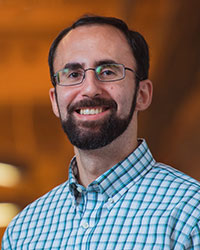Koroush Shirvan
Atlantic Richfield Career Development Professor in Energy Studies
kshirvan@mit.edu
617-452-3017
24-221

Atlantic Richfield Career Development Professor in Energy Studies
kshirvan@mit.edu
617-452-3017
24-221
Koroush Shirvan joined the faculty in the Department of Nuclear Science and Engineering in July, 2017. Previously, he was a principal research scientist at Center for Advanced Nuclear Energy Systems (CANES). He specializes in development and assessment of advanced nuclear reactor technology. He is currently focused on accelerating innovations in nuclear fuels, reactor design and small modular reactors to improve the sustainability of current and next generation power plants. His approach combines multiple scales, physics and disciplines to realize innovative solutions in the highly regulated nuclear energy sector. He is also the Co-Director of Nuclear Reactor Technology course for utility executives. Shirvan is the 2022 receipient of the Reactor Technology Award given by the American Nuclear Society.
Ph.D. Nuclear Science and Engineering, 2012
Massachusetts Institute of Technology, Cambridge, Massachusetts
Masters of Science in Nuclear Science and Engineering, 2010
Massachusetts Institute of Technology, Cambridge, Massachusetts
Bachelor of Science in Nuclear Engineering, 2008
University of Florida, Gainesville, Florida
Nuclear News 40 under 40, 2024
American Nuclear Society Landis Young Member Engineering Achievement Award, 2023
American Nuclear Society Reactor Technology Award, 2022
The work focuses on identification of failure modes to support development of advanced fuels including concepts under consideration by the Accident Tolerant Fuel (ATF) program. All of fuel concepts involve some changes to the conventional fuel that is made of UO2 pellets and Zircaloy cladding. Any type of change to the current fuel system is more costly from the point of view of manufacturing and initial regulatory burden. Thus a multi-disciplinary approach is taken in realizing feasible technology solutions. Current concepts under investigation includes: Coated Zircaloy Cladding (Zr/Cr), Metal Composite Cladding (Zr/Mo/Cr), Ceramic Composite Cladding (SiC), Coated Ceramic Composite Cladding (SiC/Cr), High Density Fuels (UN) and Direct Manufactured Fuels. The research focuses on both in-pile and out-of-pile testing of fuel concepts in extreme environments. The development of mechanistic thermal-hydraulics and structural mechanics models using high fidelity modeling and simulation guides the R&D process and evaluates the value proposition of each fuel concept.
Small Modular Reactors (SMRs) provide a path for accelerated deployment of nuclear energy given their smaller power output. However, many leading concepts such as Nuscale are designed with low plant power density and unable to be modular deployed from the site construction point-of-view. This will likely translate to the same slow deployment process as large reactors. The research work focuses on optimizing plant layout and performance that can result in shortest construction schedule and cheapest operation cost The work also investigates and introduces innovations (such as compact heat exchangers, seismic isolation, advanced I&C) to design an SMR for the 21st century market requirements. The neutronics, thermal hydraulics/CFD, fuel performance and economics analysis are key components of this research.
Opportunities in advanced data analytics are currently being explored with the growing need to do more with less data, advent of high performance computing and infiltration of machine learning for nuclear engineering applications. Current research focuses on advanced uncertainty quantification techniques for licensing application, use of physics-informed machine learning for model closures and reinforced learning for core design optimization. The research approach focuses on addressing applicability concerns of advanced data analytics from the regulatory point of view for adoption in the nuclear engineering disciplines.